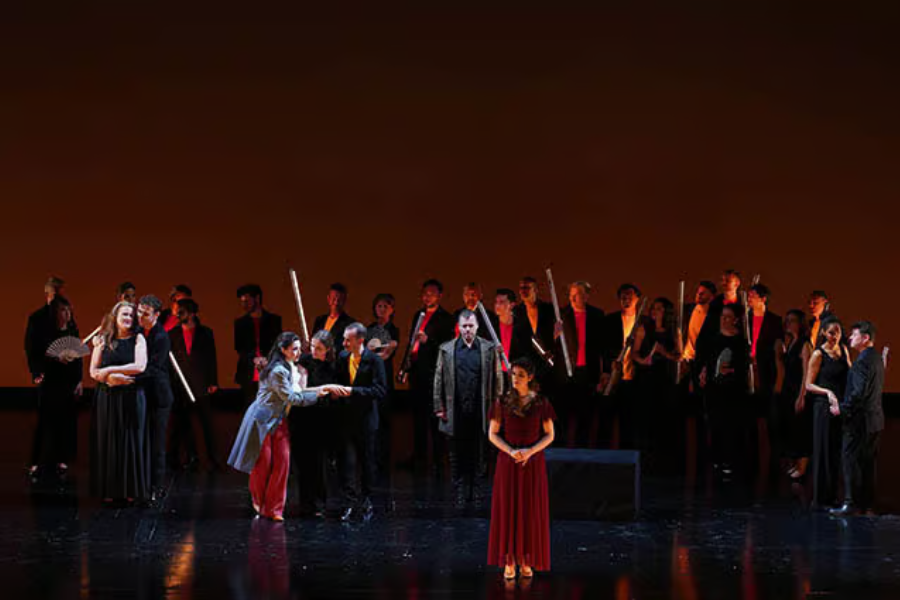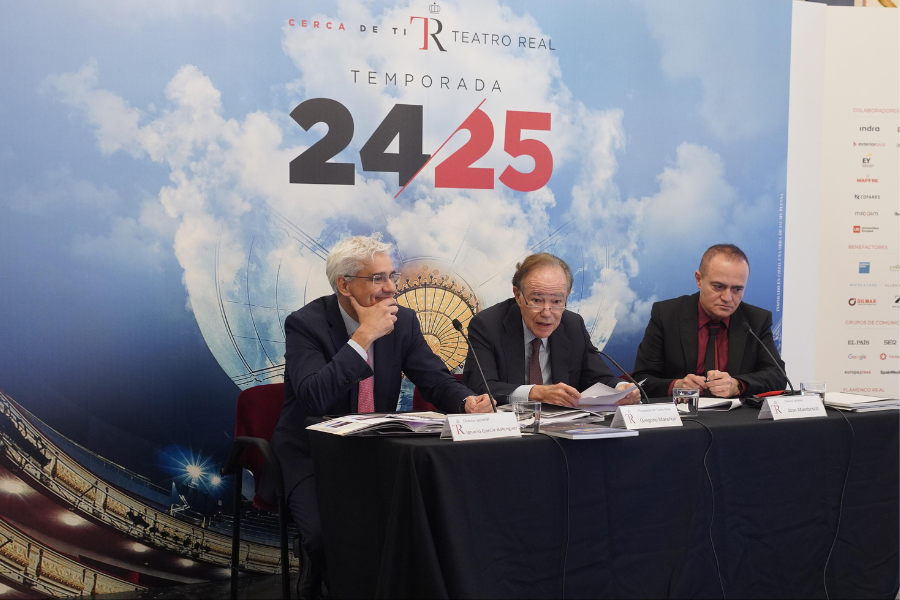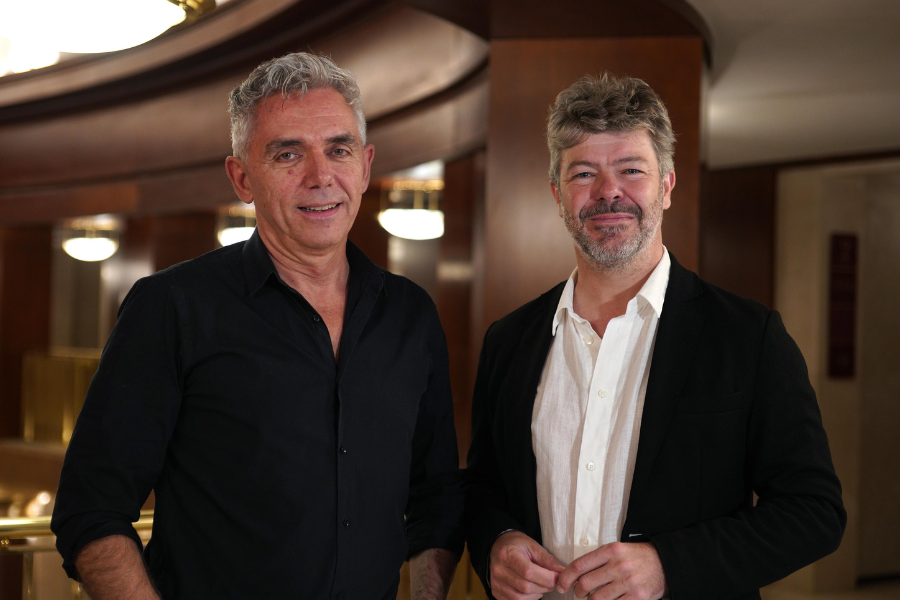Teatro Real co-produces the documentary video opera Three Tales with Naves Matadero

The work will feature the participation of Synergy Vocals, musicians of the Royal Orchestra of the Teatro Real and Nacho de Paz in the musical direction. Korot and Reich raise a debate about the physical, ethical and religious nature of technological development, its growth and its implantation in our lives.
Teatro Real will offer two exciting projects that start from a similar format, where music and image are inseparable part of a whole, but whose artistic approach is developed from two very different perspectives: Three Tales (1998-2002), contemporary creation that premieres in Spain, with music by Steve Reich and video by Beryl Korot, and Los nibelungos (1924), a mythical film by Fritz Lang with score by Gottfried Huppertz. Both proposals, directed by Nacho de Paz, will be attended by the Royal Orchestra of the Teatro Real.
THREE TALES
Co-production of Teatro Real with the Matadero Ships, Three Tales It is a “digital documentary video-opera” in which historical footage, video interviews, photographs, texts and digital images are projected on a movie screen in interaction with electronic sounds, live music and the voices of five soloists ─dos sopranos and three tenors─ of the Synergy Vocals training.
The premiere in Spain of Three Tales is a cultural event of the first order. As the British newspaper The Guardian states “there are only a handful of live composers who can legitimately say that they have altered the course of the history of music. Steve Reich is one of them. ”
Articulated in three acts, the work of Beryl Korot and Steve Reich revisits three key events of the early, mid and late twentieth century. Each of them reflects on the implications of the development of science in the recent past. Thus, from the beginning of air transport to nuclear tests or genetic experiments, there is a debate about the physical, ethical and religious nature of a technological environment that has grown exponentially since 1945.
In the first act, Hindenburg, it is recalled the explosion of a zeppelin in Lakehurst (New Jersey) in 1937 with the projection of historical images in which it burned before the cameras during its poor landing. Bikini, the second act, recalls the nuclear tests that, at the end of World War II, took place in the atoll of the Pacific Ocean for which the indigenous population was forcibly displaced. The third act, Dolly, narrates the origins of cloning and confronts this scientific milestone with the conceptualization of the human body as a genetic machine capable of being modified at will.
Three Tales represents a new type of musical theater in which historical footage, video interviews, photographs, texts and digital images are projected on a movie screen in interaction with electronic sounds and the live performance of sixteen musicians and singers. In its dramaturgy, the visual design built by the pioneering video artist is fundamental Beryl Korot whose work has been presented in the most prestigious art collections (Whitney Museum, Guggenheim and MoMA in New York, Tate Modern London or Art Basel). From the musical point of view, the rhythmic motif that Richard Wagner wrote to evoke Nibelheim, the underground city and forge of the Nibelungs, is also the engine of one of the passages of this video-opera by Steve Reich. If the Wagnerian leitmotiv could be identified with the sound of factories as a symbol of capitalism in the mid-nineteenth century, Reich moved that sound allegory to a future context. In this way, Three Tales complements the programming of the Wagner ring cycle and the upcoming cinema-concerts films Die Nibelungen of Fritz Lang’s(1 and 2) in the 19/20 season of Teatro Real.
The Fernando Arrabal Room, in the Spanish Ships in Matadero, will be the ideal setting for the interpretation of Three Tales on March 5 and 6 at 8:30 p.m. and on March 7 in double session, at 6 p.m. and at 8:30 p.m.
THE NIBELUNGOS
In 1924 one of the most ambitious projects of the historical filmmaker Fritz Lang was presented in Berlin: The Nibelungs, inspired by the epic poem The Song of the Nibelungs and composed of the films The Death of Sigfrido and The Revenge of Krimilda. For this colossal work of the German silent film, Lang had the collaboration of the composer Gottfried Huppertz, who created a score of narrative effects that transcend the image, underlining the scenes and giving the main characters an entity, which he awards a leitmotiv series , in the path of the Wagnerian legacy.
Almost a hundred years after its premiere, and after a careful restoration of both films and the recovery of the score preserved in the German Cinemateca, we are now given the opportunity to attend a screening of The Nibelungs as conceived in their day: on a large screen, with live orchestra and in the most appropriate setting, the main hall of Teatro Real.
The Friedrich-Wilhelm-Murnau Foundation (depository institution of Lang’s legacy), the German Film Library, the British Film of London, the National Image Archive of Montevideo and the Spanish Film Library, among others, have participated in this ambitious project.
The will be offered on March 21 at 8:00 p.m. death of Sigfrido, the first part of The Nibelungs,and on March 28 at 8:00 p.m., Krimilda’s Revenge, second part of the film. Both will be screened on the big screen, in the Main Hall of Teatro Real, with the performance of the Royal Orchestra of the Royal Theater and under the direction of Nacho de Paz.





